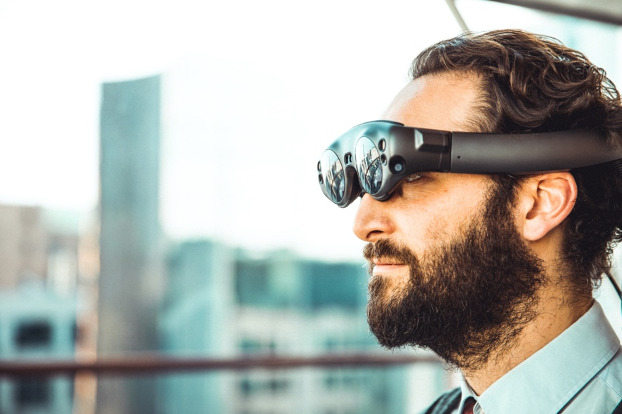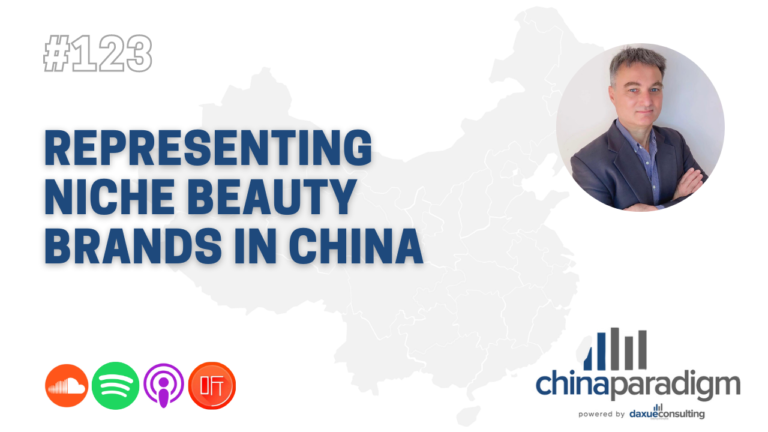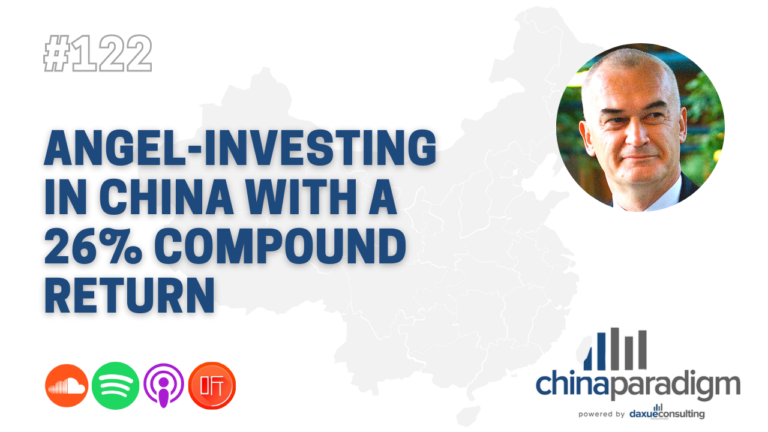China Paradigm interviewed Eloi Gerard, CEO and co-founder of CrowsNest, to understand better China’s VR market and the applications of immersive video content in China. In the interview, Eloi Gerard shares his expertise on the Chinese VR ecosystem, the digital adoption in China, some of CrownsNest’s case studies and also discusses the challenges faced by entrepreneurs in this industry.
Eloi Gerard, CEO and co-founder of CrownsNest and guest of China Paradigm podcast
After graduating with a master’s degree in business administration from the University of Namur in Belgium, Eloi Gerard started his career as a consultant. Advised by his experiences, he decided to embark on entrepreneurship in the film industry in 2008 (Learn about the film industry in China). Since then, the entrepreneur has never stopped engaging in different projects and is now the CEO and co-founder of CrowsNest, an AR and VR agency based in Shanghai.
“My background is more in creating content for the film industry. I used to be a film producer in Belgium and China for many years.”
A studio for immersive video content in China
CrownsNest XR was founded in 2015 in Shanghai. The company offers VR and AR services to help businesses develop immersive experience around their brand and to capitalize on the increasing digital adoption in China.
With almost 5 years of expertise in the industry, the enterprise is now one of the leading XR studios in Asia. As of now, the studio has worked with numerous international players including the automotive manufacturer Peugeot Citroen and the renowned company Logitech. The AR and VR enterprise believes in new technologies that, according to them, re-invent the perception people have on products and create new interactions with the world.

The challenge of China’s VR market
The Chinese VR ecosystem has not met the expectation that was forecasted by experts a few years ago. Indeed, many Chinese companies have failed to popularize VR and AR experience in China. Elois Gerard explains that to create immersive video content in China (read an article about video marketing in China) is challenging for most Chinese entrepreneurs:
“In China we don’t have enough schools of design to study film, to study storytelling and to combine three necessary different skills which are: being creative, being good with technologies and being a good businessman. In the VR industry in China, you need to have a pretty holistic approach.”
The entrepreneur also explains the particularity of the Chinese market. According to him, many Chinese XR companies that were financed by the government have ruined the reputation and image of the immersive video content in China by not satisfying their customers.
“The Chinese government helped a lot of companies that were totally unqualified. They spent a lot of money and in the end, companies went bankrupt and created a huge distortion.”

VR and AR experience in China: the perfect match with the video game industry
During the interview, the entrepreneur explains why the video game industry is leading China’s VR market:
“Gamers already have a powerful computer and they are also very delighted to buy a headset. They want to enjoy many different types of games with this technology [VR]”.
Elois Gerard explains that the Chinese VR ecosystem will develop in niche markets and is not supposed to become mainstream in the near future. The technology is expensive, requires a fast internet connection and is not appropriate for all kinds of contents.
The interviewee illustrates the growing importance of VR for the video game industry with the recent collaboration of his enterprise with Logitech. Their latest VR advertisement content had a huge success:
“After creating VR content for them [Logitech], they saw their sales for the product multiplied by 2”.
Internet censorship and its impact on the immersive video content in China
While Western companies like Google and Facebook are trying to lead the industry, these platforms are not available in the People’s Republic of China. Nevertheless, according to CrownsNest’s CEO, this has not restrained people living in the country from using foreign-developed technologies:
“It [Oculus] cannot officially enter the Chinese market. So, you need to use a VPN to use it in China, but it is so compelling that many people are using Oculus with a VPN in China. You can buy an Oculus Quest on Taobao, T-Mall or JD.com for instance”.
All these restrictions add complexity to the VR and AR experience in China. In fact, companies competing in China’s VR market have difficulties to decide where to promote their content and how to optimize the numbers of clients for their products.
Listen to this episode here:










